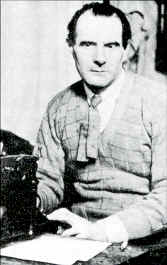A Quote by Paula Gunn Allen
English is, from my point of view as an Americanist, an ethnicity. And English literature should be studied in Comparative Literature. And American literature should be a discipline, certainly growing from England and France, Germany, Spain, Denmark, and the Native traditions, particularly because those helped form the American canon. Those are our backgrounds. And then we'd be doing it the way it ought to be done. And someday I hope that it will be.
Quote Topics
American
American Literature
Backgrounds
Because
Canon
Certainly
Comparative
Comparative Literature
Denmark
Discipline
Doing
Done
England
English
English Literature
Ethnicity
Form
France
Germany
Growing
Helped
Hope
Literature
Native
Ought
Our
Particularly
Point
Point Of View
Should
Someday
Spain
Studied
Then
Those
Traditions
View
Way
Will
Related Quotes
The English tourist in American literature wants above all things something different from what he has at home. For this reason the one American writer whom the English whole-heartedly admire is Walt Whitman. There, you will hear them say, is the real American undisguised. In the whole of English literature there is no figure which resembles his - among all our poetry none in the least comparable to Leaves of Grass
I'd studied English literature and American history, but the English literature, which I thought was going to be helpful to me in an immediate way, was the opposite. So I had to un-think a lot of things and move out of my own head, and I learned a lot. It was like graduate school, but an un-graduate school or an un-school.
I believe it is essential to have English as the official language of our National Government, for the English language is the tie that binds the millions of immigrants who come to America from divergent backgrounds. We should, and do, encourage immigrants to maintain and share their traditions, customs and religions, but the use of English is essential for immigrants and their children to participate fully in American society and achieve the American dream.
I changed my major to English literature, which was on the advice of my father. I finally said, "You know, Dad, to heck with it: I'm just going to be an actor. But I'm going to go to school." And he said, "Well, if you're going to go to school, then major in English literature. Those are the tools you are going to be working with as a man who's going to be acting in English, one would assume."







































